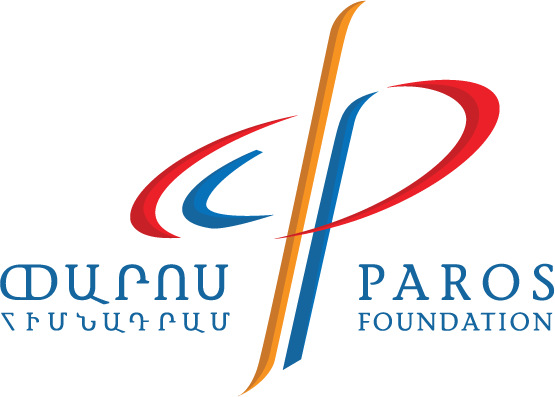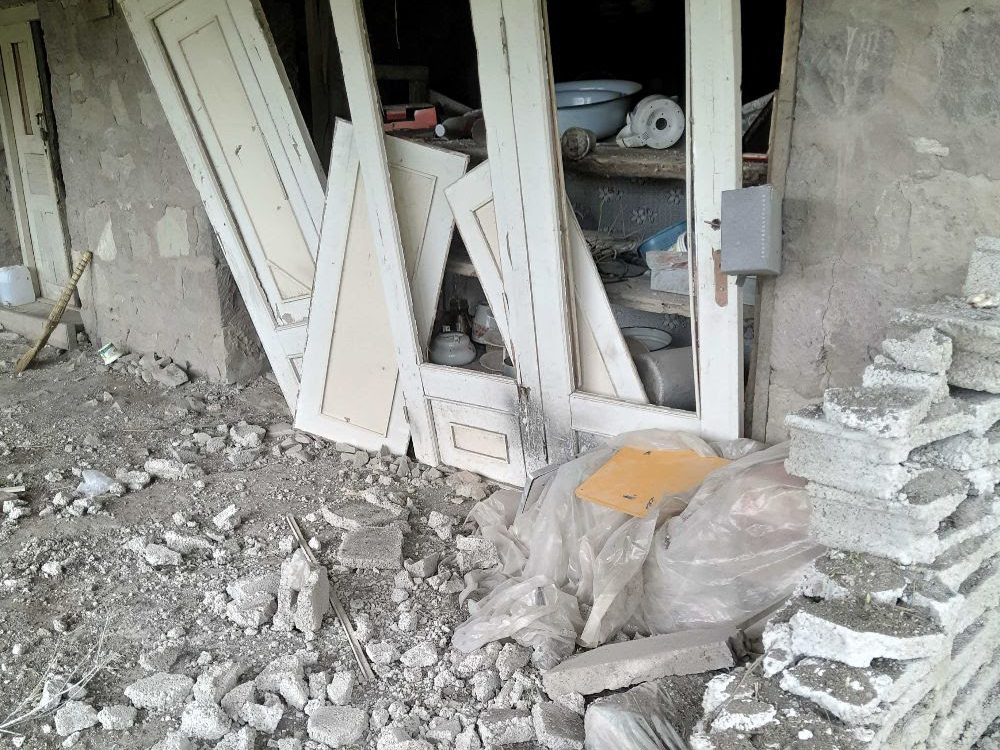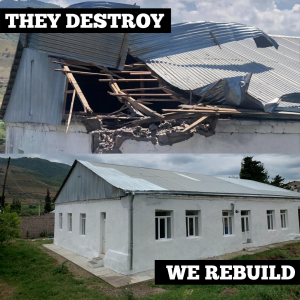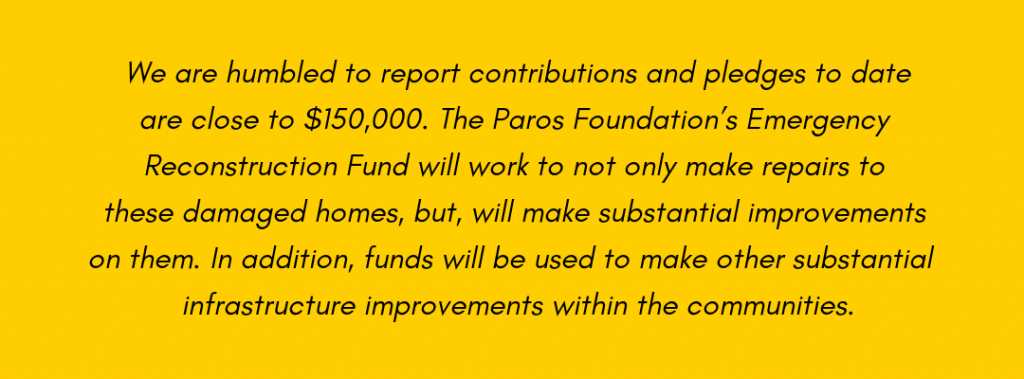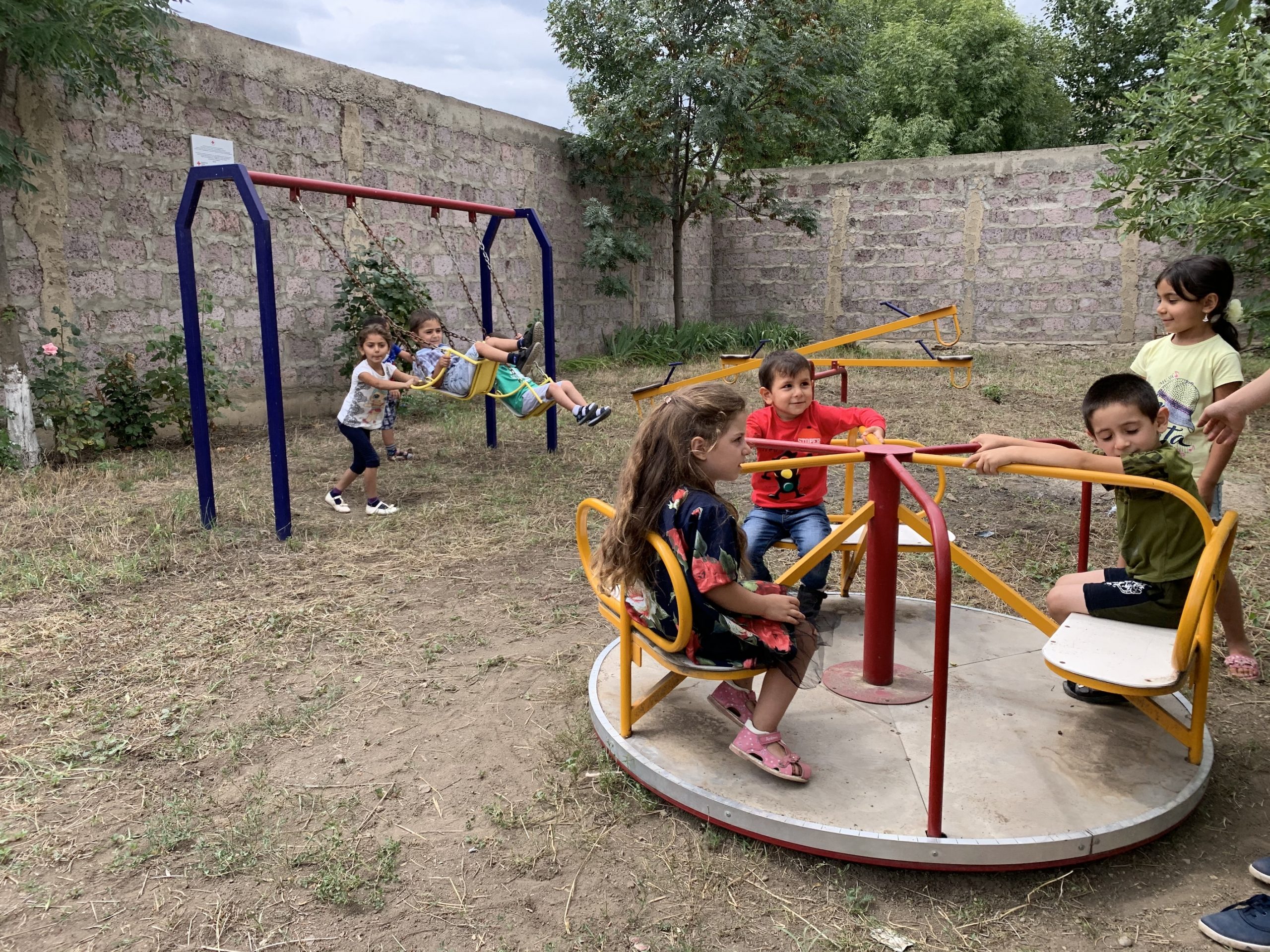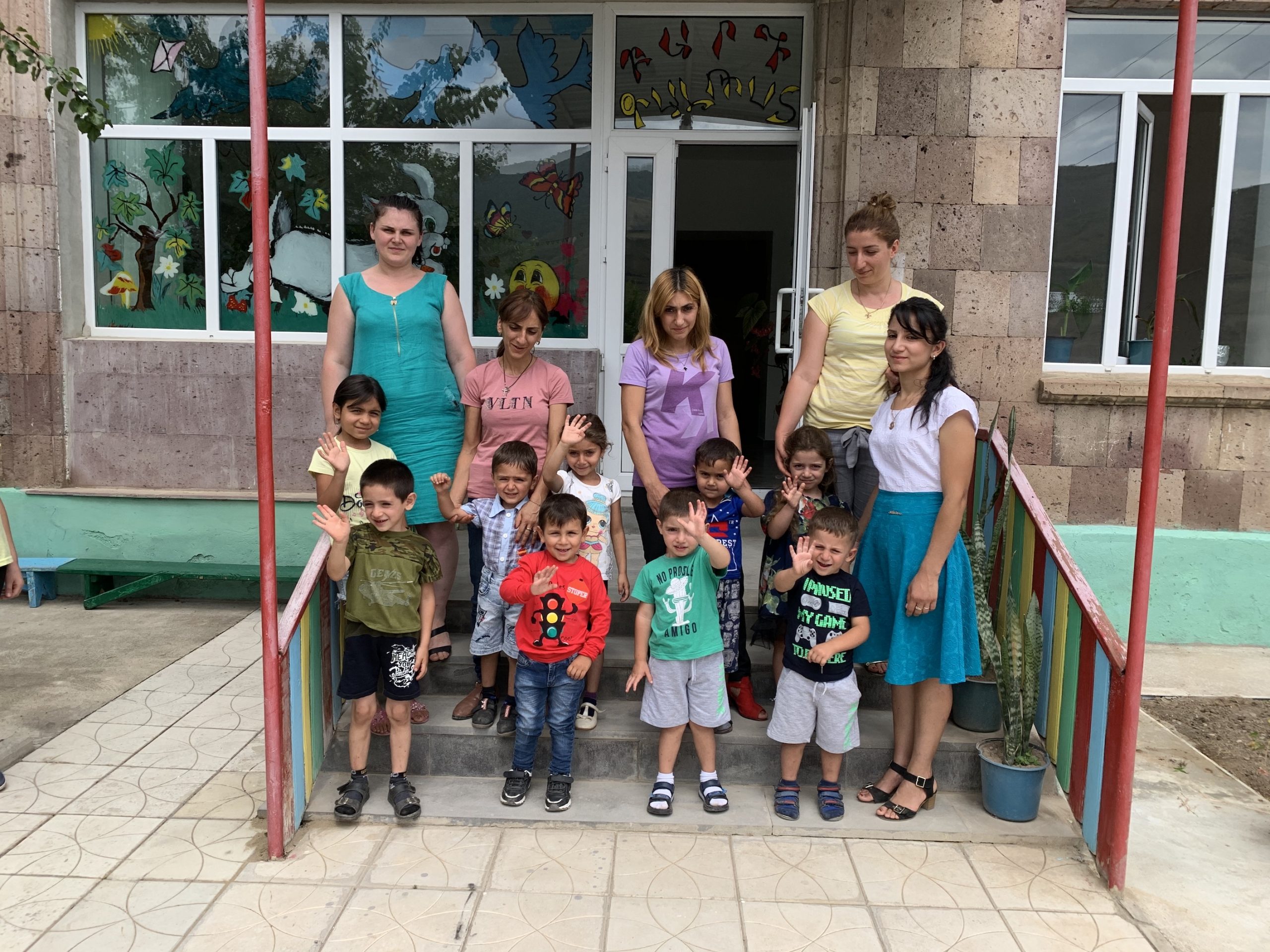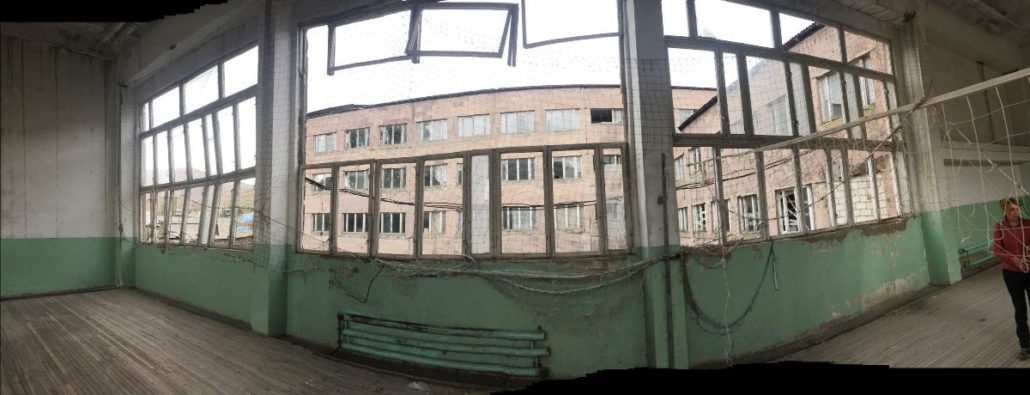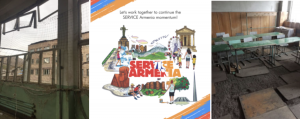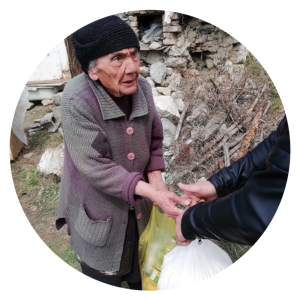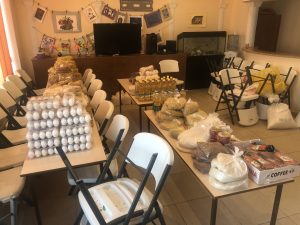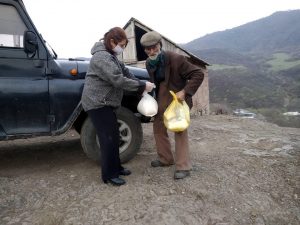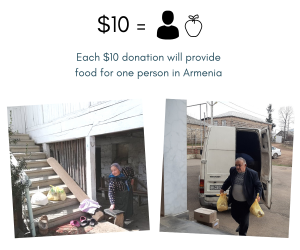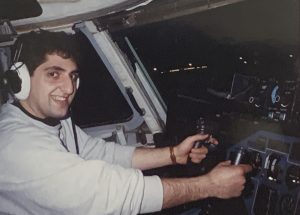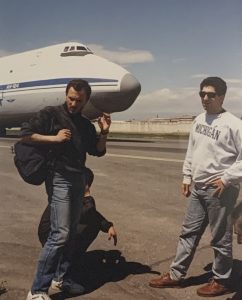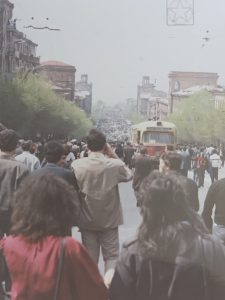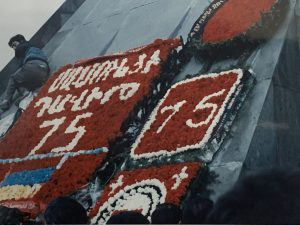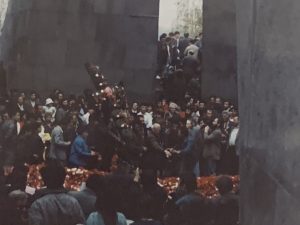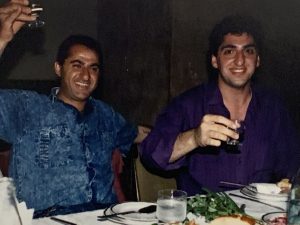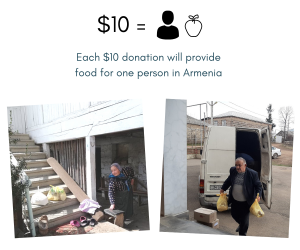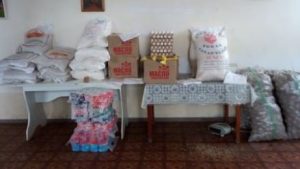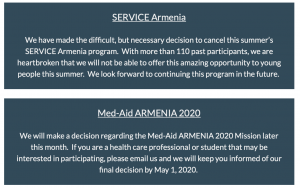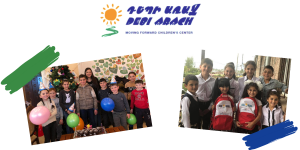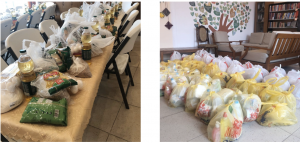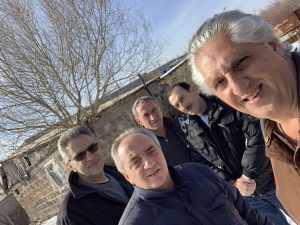
Not a great photo, but here we are in Gyumri with our friend and partner, Vahan Tumasyan from the Shirak Center NGO.
The Paros team just got back from Gyumri yesterday, where we selected three more families to be moved from “domiks” into apartments. This makes six families we have selected and will move this month thanks to the generous support of the Jack Youredjian Family Foundation, and 17 families in total to date. 24 people including two people with disabilities, three seniors, two single moms, one soldier and 10 young children (five of which will now be kept out of boarding schools!) are moving to new apartments in the coming couple of weeks. The process by which this program operates, and how family selections are made is something I am often asked about, and something our team often discusses, argues about and loses sleep over. Here’s the deal–I don’t promise that this post will be fun and exciting, but I am going to try and make it informational at the least:
The Domik Problem:
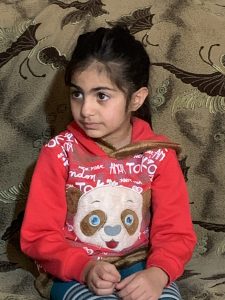
Gayane Matevosyan (age 7) was awoken by a rat attack in her bed.
There is a ton of information in our Purchase a Home projects on our site about the domiks. Essentially, 30 years ago, following the Spitak Earthquake (about 35,000 people dead and more than 100,000 homeless), moving into empty overseas shipping containers was a good idea. Fast forward to 2019, these temporary shelters have turned into literally a house of horrors. Rats, wild dogs, lice add to the grief these people face. I would estimate that 99% of these domiks do not have a normal bathroom nor bathing facilities. Some don’t have running water. All of them are freezing in the winter and scorching in the summer. Gayane, who is seven years old, woke up last week in her bed from a rat attack. She is one of the children who we are moving into a new apartment with her family. As I said, these domiks are literally a house of horrors.
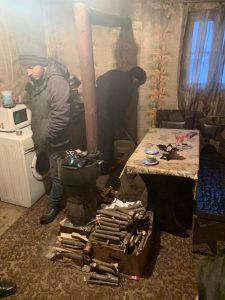
The Matevosyan domik has no running water and a fair amount of smoke from the wood burning heater.
How can there still be a couple of thousand families living in these conditions, when the government says they have now provided all the families that lost homes in the earthquake an apartment? The answer to this question is a bit complicated and best discussed over drinks. First, the government developed a list of every family that was living in government provided housing. These are the families that ultimately were provided new housing. If they were living in Gyumri and paying rent, or living in a single family home, or not registered to a specific apartment, they didn’t qualify. Secondly, through the decades, these families have grown. It may have been the case 30 years ago that a newly married family with two small children lost their apartment. 30 years later, those children have grown up, perhaps have gotten married, and now have families of their own. Even if that family received a two bedroom apartment because that is what they lost 30 years ago, how could three families of 10 or 12 people be expected to live in that new apartment. In this situation, typically one or two of those families would stay in domiks and one would take the apartment. Finally, back in the day under old leadership, there was a healthy portion of corruption when it came to rebuilding apartments, distributing new apartment and distributing apartment certificates (basically cash certificates to allow one to purchase an apartment on the free market.) This too left many families with no housing options.
The Apartment:
When we have donor funding in place, our team hits the ground running in Gyumri and works with list.am, Gyumri real estate brokers, and searches through apartment complexes in the Mush II neighborhood for apartments for sale. The apartments we help secure need to be free of debt and encumbrances and be eligible for resale on the free market. We also avoid buying apartments from people who do not have a plan on where they are going to live (i.e. we don’t want to contribute to the domik problem in Gyumri.) If the apartments need to be remodeled or if the family needs some basic furniture or appliances, we try and outfit the apartment to the extent our budget permits. In the past, we have purchased studio, one, two and three bedroom apartments for families depending on the family’s needs.
The Purchase Process:
At the time of contract signing, we bring the entire family to the State Notary Service to have them sign the Purchase Contract with the Seller (nope, no escrow service in Armenia yet!) We provide the stack of cash to the purchasing family, and they then slide it across the table to the sellers. The Notary verifies the transaction and the beneficiary family is now legal owner of the new apartment. At the same sitting, the beneficiary family signs a gift agreement with The Paros Foundation that indicates they are obliged to live in their new apartment until their youngest child turns 18 or for 10 years (whichever is longer.) They cannot rent, sell or live elsewhere without our permission, or we can take the apartment away from them. Our goal with this is to ensure a new start for this family. Secondly, the family agrees to give us their old domik so our friends at the Shirak Center can tear it down and make certain no onewill ever live in those unbearable conditions again. Then, we help submit the signed purchase contract to the State Cadastre so the family can pick up their new deed in a few days. Once this is completed, our Shirak Center friends help move the family into their new apartment and the domik tear down begins.
The Family Selection Process:
Family selection is the tough part of this process. We are not playing God, but sometimes it feels like we are. How can you look at someone living in a trash heap with rats and pass that family over for another? It is tough and I think some of my white hair is because of this project. O.K. Here is the process we follow. First, we depend on advice and guidance from Vahan Tumasyan at the Shirak Center NGO. He is the expert in Gyumri on these families. Together, with Vahan and our Paros colleagues, we have probably been in 200+ domiks in Gyumri over the last five years. Some of these visits have been to help distribute firewood or food through our other humanitarian projects in Gyumri. Second, we sometimes depend on direction from a donor. Sometimes we are asked to find a family with lots of children to move; and sometimes, the decision is left to us. Vahan typically helps us line up several families to visit so we can vet and shorten the list.
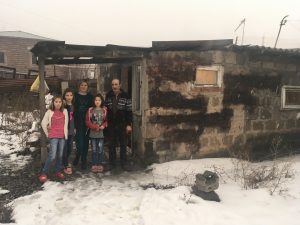
The Boghosian Family outside of their domik following the news they would be receiving an apartment in the coming days.
Here are a couple of guidelines we follow: First, the family has to be willing to surrender their domik to us so we can tear it down. If they won’t, then we pass them over. It is hard to believe, but it has happened. Second, the family has to be trying at some level to work or care for themselves, rather than sitting around waiting for handouts. I know this sounds harsh, but if you have two families with three kids each, which are you going to support? The family who’s mother picks potatoes seasonally and the dad that collects recyclables to buy his family bread? Or the family with the mom and dad that sit at home and say there is no work to be found? Third, while visiting families, we look for signs that they can be successful in their new apartments. If their domik is as clean as the conditions permit, this is an indication that they would care for their apartment in a similar fashion. If things in their domik are organized, this again is a potential indicator of future success. The same indicators exist and stand out with the relationship between the parent or parents and their children. If there is any indication that there is a strong tie to education for their children, this too helps in our vetting process. Finally, the family has to have some income to be able to pay the bills in their new apartment. This income can be pensions, salary, support from family outside of Armenia, etc. The realities of what these people go through on a daily basis have distorted their family situations to an extreme. Our goal again, is to provide a beneficiary family with a home so that their family would be successful in living what one might call a more normal life.
In closing, I think it is important to state as part of this last trip to Gyumri, we visited several of the families that have previously benefited from our Purchase A Home project and they were all doing great! It was absolutely wonderful seeing families and children that looked well, apartments that were clean and so many smiles. A great big thanks to everyone that has supported this life changing project in the past.
